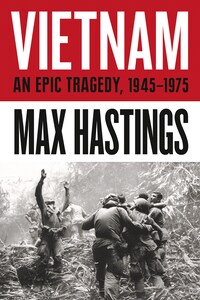THE BATTLE FOR JAPAN, 1944-45
William Collins
An imprint of HarperCollinsPublishers Ltd. 1 London Bridge Street London SE1 9GF
www.harpercollins.co.uk
This ebook edition first published in 2009
First published in Great Britain by HarperPress in 2007
Copyright © Max Hastings 2007
Cover photograph © akg-images/Pictures from History
Max Hastings asserts the moral right to be identified as the author of this work
A catalogue record for this book is available from the British Library
All rights reserved under International and Pan-American Copyright Conventions. By payment of the required fees, you have been granted the non-exclusive, non-transferable right to access and read the text of this e-book on-screen. No part of this text may be reproduced, transmitted, down-loaded, decompiled, reverse engineered, or stored in or introduced into any information storage and retrieval system, in any form or by any means, whether electronic or mechanical, now known or hereinafter invented, without the express written permission of HarperCollins ebooks
HarperCollinsPublishers has made every reasonable effort to ensure that any picture content and written content in this ebook has been included or removed in accordance with the contractual and technological constraints in operatin at the time of publication
Source ISBN: 9780007219810
Ebook Edition © SEPTEMBER 2009 ISBN: 9780007344093
Version: 2017-03-23
From the reviews of Nemesis:
‘The shocking, little-known story of the war against Japan. Absolutely excellent’
JOHN SIMPSON, Observer
‘Spectacular. Hastings is excellent, unsparing and compelling. Searingly powerful’
ANDREW ROBERTS, Sunday Telegraph
‘A triumph. Put all these elements together—the ambition, insight, sureness of touch—and you have a book of real quality’
LAURENCE REES, Sunday Times
‘An outstandingly gripping and authoritative account of the battle for Japan, and a monument to human bravery—and savagery’
DOMINIC SANDBROOK, Daily Telegraph
In memory of my son
CHARLES HASTINGS 1973-2000
War is human, it is as something that is lived like a love or a hatred…It might better be described as a pathological condition because it admits of accidents which not even a skilled physician could have foreseen.
MARCEL PROUST
‘Oh, surely they’ll stop now. They’ll be horrified at what they’ve done!’ he thought, aimlessly following on behind crowds of stretchers moving away from the battlefield.
Tolstoy’s Pierre Bezukhov at Borodino, 1812
In 1944, there seemed absolutely no reason to suppose that the war might end in 1945.
CAPTAIN LUO DINGWEN, Chinese Nationalist army
Sir Arthur Tedder, Eisenhower’s deputy supreme commander in Europe in 1944-45, suggested that warriors educating themselves for future conflicts should study the early phases of past ones: ‘There are no big battalions or blank cheques then,’ he wrote ruefully. In the first campaigns, nations which are victims rather than initiators of aggression enjoy scanty choices. They strive for survival with inadequate resources, often unsuitable commanders, all the handicaps of fighting on an enemy’s terms. Later, if they are granted time fully to mobilise, they may achieve the luxury of options, of might equal or superior to that of the enemy, of the certainty of final victory tempered only by debate about how to secure this most swiftly and cheaply. Tedder and his Allied comrades experienced all these sensations.
For students of history, however, the manner in which the Second World War ended is even more fascinating than that in which it began. Giants of their respective nations, or rather mortal men cast into giants’ roles, resolved the greatest issues of the twentieth century on battlefields in three dimensions, and in the war rooms of their capitals. Some of the most populous societies on earth teemed in flux. Technology displayed a terrifying maturity. Churchill entitled the closing volume of his war memoirs Triumph and Tragedy. For millions, 1944-45 brought liberation, the banishment of privation, fear and oppression; but air attack during those years killed more people than in the rest of the conflict put together. Posterity knows that the war ended in August 1945. However, it would have provided scant comfort to the men who risked their lives in the Pacific island battles, as well as in the other bloody campaigns of that spring and summer, to be assured that the tumult would soon be stilled. Soldiers may accept a need to be the first to die in a war, but there is often an unseemly scramble to avoid becoming the last.














